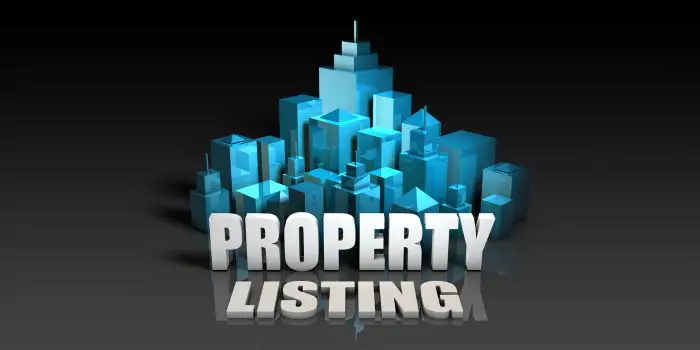Marketing is crucial for property managers aiming to attract tenants, retain clients, and maintain a positive reputation. However, many property managers make common mistakes that hinder their success.
By identifying and addressing these mistakes, property managers can enhance their marketing efforts and achieve better results. Here are the top 10 marketing mistakes property managers make.
1. Neglecting Online Presence and Property Listings

Property managers often underestimate the importance of a strong online presence and high-quality property listings. In today’s digital age, potential tenants and clients begin their search online. A poorly designed website or inactive social media profiles can deter prospects. Ensuring your website is user-friendly, mobile-responsive, and regularly updated with current listings and information is crucial.
High-quality property listings are essential for attracting tenants. Listings with low-quality photos, insufficient details, and inaccurate descriptions fail to capture interest. Invest in professional photography and provide comprehensive information about each property, including amenities, location, and unique features. Detailed and visually appealing listings can significantly boost your marketing efforts.
Incorporate giveaways for property managers, promotional products, and swag to enhance your online presence and engage potential tenants. These strategies can create a positive impression and attract more interest in your properties.
2. Ignoring SEO

Search engine optimization (SEO) is a critical aspect of digital marketing. Many property managers fail to optimize their websites for search engines, leading to low visibility in search results.
By incorporating relevant keywords, creating high-quality content, and utilizing local SEO strategies, property managers can improve their search engine rankings and attract more organic traffic. This includes optimizing property listings with relevant keywords and ensuring that each listing has a unique, detailed description.
Regularly updating your website with fresh content, such as blog posts about property management tips and local market trends, can also enhance your SEO efforts.
3. Poor Quality Listings
High-quality property listings are vital for attracting tenants. Listings with low-quality photos, insufficient details, and inaccurate descriptions fail to capture interest. Invest in professional photography and provide comprehensive information about each property, including amenities, location, and unique features.
Detailed and visually appealing listings can significantly boost your marketing efforts. Ensure that each listing is well-organized and easy to navigate. Including virtual tours or video walkthroughs can also provide potential tenants with a better understanding of the property, increasing their likelihood of scheduling a viewing.
4. Inconsistent Branding
Consistency in branding is essential for building a recognizable and trustworthy image. Property managers often make the mistake of using different logos, colors, and messaging across various platforms.
Establish a consistent brand identity that reflects your company’s values and maintain it across all marketing materials, including your website, social media, and print advertisements.
This consistency helps build trust with potential tenants and clients, making your brand more memorable. Additionally, having a strong brand identity can differentiate you from competitors and create a sense of reliability and professionalism.
5. Overlooking Social Media
Social media platforms offer a powerful way to connect with potential tenants and clients. Ignoring social media or failing to engage with your audience can limit your reach. Regularly post updates, share valuable content, and respond to comments and messages.
Utilizing social media advertising can also help target specific demographics and increase your visibility. Each platform has its own strengths, so tailor your content to fit the platform.
For example, Instagram is ideal for visually appealing property photos, while LinkedIn can be used to share industry news and establish your expertise. Engaging with your audience through comments, messages, and interactive posts can build a loyal community and drive more traffic to your listings.
6. Failing to Track and Analyze Data
Many property managers do not track or analyze their marketing efforts. Without data, it is challenging to determine what strategies are working and which ones need improvement. Utilize tools like Google Analytics to monitor website traffic, conversion rates, and other key metrics.
Analyzing this data allows you to make informed decisions and optimize your marketing strategies for better results. Tracking data helps you understand the effectiveness of your marketing campaigns and identify areas for improvement.
Regularly reviewing your analytics can provide insights into tenant behavior, preferences, and trends, allowing you to tailor your marketing efforts to better meet their needs.
7. Not Utilizing Email Marketing
Email marketing is a cost-effective way to reach potential and current tenants. Failing to build and maintain an email list means missing out on opportunities to communicate directly with your audience.
Send regular newsletters with updates, promotions, and valuable information. Personalized and targeted email campaigns can enhance tenant retention and attract new prospects. Segment your email list to send tailored messages to different groups, such as current tenants, potential tenants, and property owners.
Providing valuable content, such as maintenance tips and community news, can keep your audience engaged and foster a sense of connection with your brand.
8. Ignoring Reviews and Feedback

Online reviews and feedback play a significant role in shaping your reputation. Ignoring negative reviews or failing to respond to feedback can harm your credibility. Actively monitor review sites and social media for comments about your properties.
Respond promptly and professionally to both positive and negative reviews, showing that you value tenant feedback and are committed to improving your services. Encouraging satisfied tenants to leave positive reviews can boost your online reputation and attract more potential tenants.
Addressing negative feedback with empathy and solutions demonstrates your dedication to tenant satisfaction and can turn a negative experience into a positive one.
9. Lack of Community Involvement
Community involvement can enhance your visibility and reputation. Property managers often neglect opportunities to engage with the local community. Participate in community events, sponsor local organizations, and support local causes.
Building strong community relationships can increase word-of-mouth referrals and establish your company as a trusted and involved member of the community. Engaging with the community shows that you care about more than just your properties, which can build goodwill and positive relationships.
Hosting events, offering community resources, and collaborating with local businesses can strengthen your ties to the community and attract more tenants.
10. Overlooking Mobile Users
With the increasing use of smartphones, it is crucial to cater to mobile users. Many property managers fail to optimize their websites and marketing materials for mobile devices. Ensure that your website is mobile-friendly and that your emails, advertisements, and listings are easily accessible on smartphones and tablets.
A seamless mobile experience can improve user engagement and attract more potential tenants. Mobile optimization includes having a responsive website design, fast loading times, and easy navigation.
Mobile users should be able to view property listings, schedule viewings, and contact you without any difficulties. Providing a positive mobile experience can increase the likelihood of tenants choosing your properties over competitors.
Conclusion
Avoiding these common marketing mistakes can significantly improve the effectiveness of your property management business.
By focusing on a strong online presence, optimizing for search engines, creating high-quality listings, maintaining consistent branding, engaging on social media, tracking data, utilizing email marketing, addressing reviews and feedback, involving the community, and catering to mobile users, property managers can enhance their marketing strategies and achieve better results.









